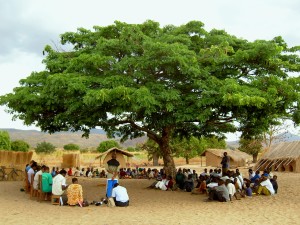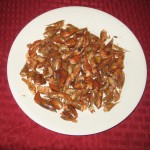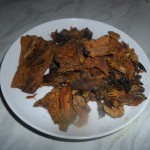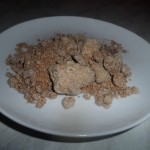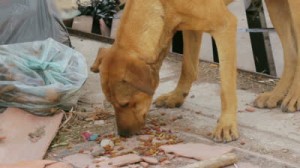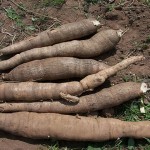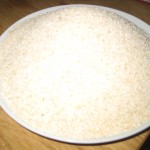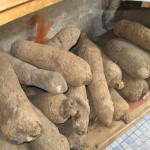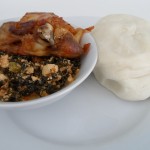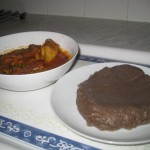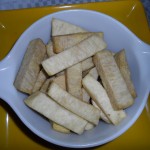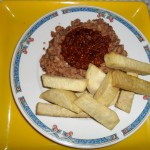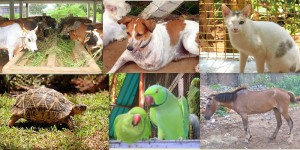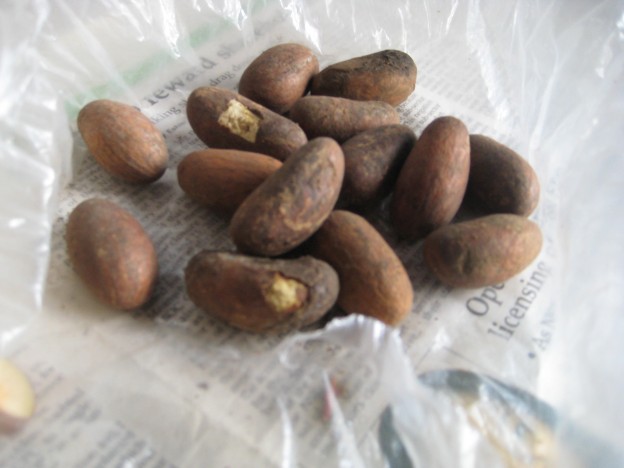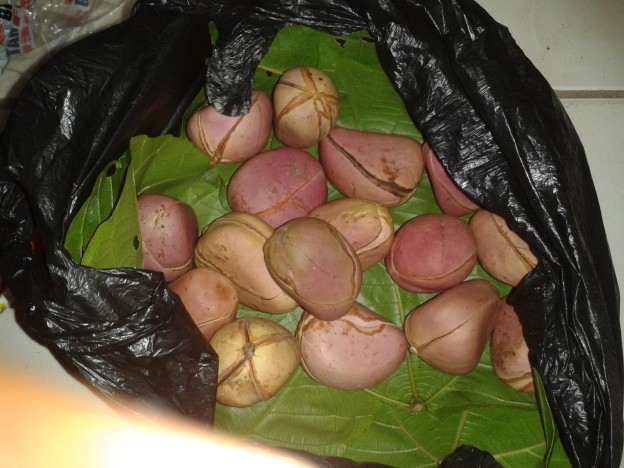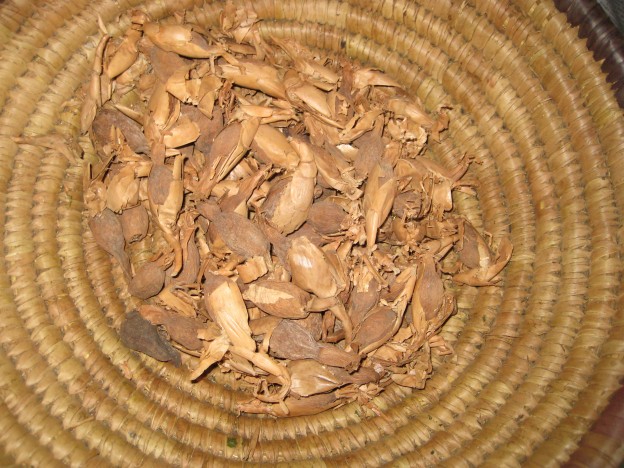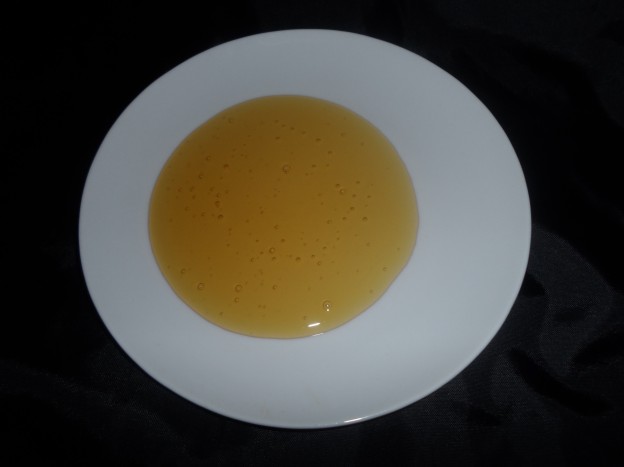Ìtàn ti ó wọ́pọ̀ ni, bi iyá-ọkọ ti burú lai ri ìtàn iyá-ọkọ ti ó dára sọ. Eyi dákún àṣà burúkú ti ó gbòde láyé òde òni, nipa àwọn ọmọge ti ó ti tó wọ ilé-ọkọ tàbi obinrin àfẹ́sọ́nà ma a sọ pé àwọn ò fẹ́ ri iyá-ọkọ tàbi ki iyá-ọkọ ti kú ki àwọn tó délé.
Ni ayé àtijọ́, agbègbè kan na a ni ẹbi má ngbé – bàbá-àgbà, iyá-àgbà, bàbá, iyá, ẹ̀gbọ́n, àbúrò, iyàwó àgbà, iyàwó kékeré, ìyàwó-ọmọ, àwọn ọmọ àti ọmọ-mọ. Ṣùgbọ́n ni ayé òde òni, ọ̀pọ̀ kò fẹ́ ṣe iṣẹ́ àgbẹ̀ mọ, ẹbi ti fúnká si ilú nlá àti òkè-òkun nitori iṣẹ́ ajé àti iṣẹ́-ijọba.
Ni ọ̀pọ̀ ọdún sẹhin, iyá kan wà ti a o pe orúkọ rẹ ni Tanimọ̀la ninú ìtàn yi. Ó bi ọmọ ọkùnrin meje lai bi obinrin. Kékeré ni àwọn ọmọ rẹ wà nigbati ọkọ rẹ kú. Tanimọ̀la fi ìṣẹ́ àti ìyà tọ́ àwọn ọmọ rẹ, gbogbo àwọn ọkùnrin na a si yàn wọn yanjú. Nigbati wọn bẹ̀rẹ̀ si fẹ́ ìyàwó, inú rẹ dùn púpọ̀ pé Ọlọrun ti bẹ̀rẹ̀ si dá obinrin ti ohun kò bi padà fún ohun. Ó fẹ́ràn àwọn ìyàwó ọmọ rẹ gidigidi ṣùgbọ́n ọ̀pọ̀ ọmọ rẹ kó lọ si ilú miran pẹ̀lú ìyàwó wọn nitori iṣẹ́. Àbi-gbẹhin rẹ nikan ni kò kúrò ni ilé nitori ohun ló bójú tó oko àti ilé ti bàbá wọn fi silẹ. Nigbati ó fẹ ìyàwó wálé, inú iyá dùn pé ohun yio ri ẹni bá gbé. Ìyàwó yi lẹ́wà, o si ni ọ̀yàyà, eyi tún jẹ́ ki iyá-ọkọ rẹ fẹ́ràn si gidigidi.
Yorùbá ni “Ẹni a fẹ́ la mọ̀, a ò mọ ẹni tó fẹni”. Tanimọ̀la kò mọ̀ pé àjẹ́ ni ìyàwó-ọmọ ti ohun fẹ́ràn, ti wọn jọ ngbé yi. Bi Tanimọ̀la bá se oúnjẹ, ohun pẹ̀lú ọmọ àti ìyàwó-ọmọ rẹ ni wọn jọ njẹ ẹ. Bi ìyàwó bá se oúnjẹ, á bu ti iyá-ọkọ rẹ. Kò si ìjá tàbi asọ̀ laarin wọn ti ó lè jẹ ki iyá funra.
![Yam pottage]()
àsáró-iṣu – Yam Pottage. Courtesy: @theyorubablog
Yorùbá gbà pé ohun burúkú ni ki enia jẹun lójú orun. Ni ọjọ́ kan, iyá ké lati ojú orun ni bi agogo mẹrin ìdájí òwúrọ̀, pe ìyàwó-ọmọ ohun ti fún ohun ni oúnjẹ jẹ ni ojú orun. Ìyàwó-ọmọ rẹ kò sẹ́, bẹni kò sọ nkan kan. Ọkọ rẹ kò gba iyá rẹ gbọ. Lati igbà ti iyá ti ké pé ohun jẹ àsáró-iṣu ti ìyàwó-ọmọ ohun gbé fún òhun jẹ lójú orun ni inú rirun ti bẹ̀rẹ̀ fún iyá. Inú rirun yi pọ̀ tó bẹ gẹ ẹ ti wọn fi gbé Tanimọ̀la kúrò ni ilé fún ìtọ́jú. Wọn gbiyànjú titi, kò rọrùn, nitori eyi, Tanimọ̀la ni ki wọn gbé ohun padà lọ si ilé ki ohun lọ kú.
Ki Tanimọ̀la tó kú, ó pe gbogbo ilé lati ge ẹgun fún ìyàwó-ọmọ rẹ pé “Òhun jẹ ìyá lóri ọmọ, nigbati àsikò àti jẹun ọmọ tó, ìyàwó-ọmọ ṣe ikú pa ohun. Nitori eyi, ìyàwó-ọmọ yi ko ni jèrè ọmọ rẹ, ẹlòmiràn ni yio wo ọmọ rẹ dàgbà. Ó ni à fi ti ó bá jẹ ẹ̀ṣẹ̀ ni lati ni ifẹ́ ìyàwó-ọmọ”. Bi ó ti ge ẹ̀gún tán ni o mi imi ikẹhin ti ó si kú.
Yorùbá ni “Ọlọrun àtijọ́, ló npẹ́ dájọ́”, oṣù meje lẹhin ikú Tanimọ̀la (iyá-ọkọ), ìyàwó bẹ̀rẹ̀ si rù nitori kò lè jẹun, kò pẹ́, ó bẹ̀rẹ̀ àisàn. Ó ni ohun kò lè sùn bẹni ohun kò lè jẹun nitori iyá-ọkọ kò jẹ́ ki ohun gbádùn. Lóri àisàn ni ó ti bẹ̀rẹ̀ si jẹ́wọ́ pé tòótọ́ ni ohun gbé oúnjẹ ti ohun gbà ninú ẹgbẹ́ àjẹ́ fún iyá-ọkọ ohun. Ó pariwo titi ó fi kú.
Ìtàn yi fihàn pé ẹ̀san mbọ̀ fún oniṣẹ́ ibi. Ẹ̀kọ́ ni fún àwon ọmọge òde òni pé, ki ṣe gbogbo iyá-ọkọ ló burú, bó pẹ́ bóyá, ẹ̀san mbọ̀ fún ìyàwó ti ó ni ohun kò fẹ́ ri iya-oko, tàbi ki iyá-ọkọ kú ki ohun tó délé.
ENGLISH TRANSLATION
The common stories often told, are all about wicked mother-in-laws, rarely are stories of good mother-in-laws told. This has contributed to the bad modern day culture, where spinsters are declaring that they would not tolerate any mother-in-law in their future home or fiancé wishing their mother-in-law dead before they tie the knot.
In the olden days, families live together within the same community – grand-father, grandmother, father, mother, older and younger siblings, senior and younger wives, daughter-in-laws, their children and grandchildren. But nowadays, many have abandoned agriculture/farming, families are migrating to the big cities and abroad in search of trade and government work.
Many years ago, there was a woman named in this story as Tanimola (meaning “who knows tomorrow). She had seven sons without any female child. The children were young when her husband died. Tanimola raised her children in hardship and poverty, and they all became successful men. When they began to marry, she was indeed very happy that the Lord has given her the female children she could not bear. She loved her daughter-in-laws dearly but the sons began to move out of the community with their families in search of job. Only her last son was left with the responsibilities of tending their father’s farmland and the home he left behind. When he was old enough, he got married into the family which made his mother happy that she would now have company. The woman was very beautiful and charming too, this made her mother-in-law to be madly in love with her the more.
According to one of the Yoruba adage meaning “We can only be sure of who we love, but not sure of who loves us”. Tanimola did not know that the daughter-in-law who she loved and share the house with is a witch. When she cooked, she shared with her son and daughter-in-law. The daughter-in-law in turn shared her meal with the mother-in-law. There was no fight or quarrel between them, hence she had no reason for suspicion.
Yoruba believed that “eating in a dream” portend evil. One day, Tanimola woke up suddenly at about four o’clock in the morning, with a cry that she had eaten the food presented by her daughter-in-law in her sleep. The daughter-in-law neither denied nor responded. Her husband did not believe his mother. Since the woman cried out that she had eaten yam pottage in her sleep, stomach ache began. The stomach-ache persisted to the extent that she had to be taken to various healers. All the efforts, yielded no relief, hence Tanimola requested that she be taken back home to die.
In anticipation of death, she summoned all the family members to witness as she pronounced a curse on the daughter who she believed was the cause of her problem thus, “she recounted that she suffered so much to raise her children and now that the time has come for her to enjoy the fruits of her labour, she was being deprived by her daughter-in-law through mysterious circumstances. As a result, she cursed that her daughter-in-law will not live to enjoy the fruits of her labour on her own children and that her children will be raised by others”. Immediately after the curse, she took her last breath and died.
Another Yoruba adage said “God of yesteryears often delayed judgement”, after seven months the death of Tanimola (mother-in-law), the daughter-in-law began to lose weight as a result of her loss of appetite, she became sick. She said she was unable to sleep or eat because her mother-in-law was preventing her. She then began to confess on her sick bed as she owned up that she actually gave the food given to her at her coven to her mother-in-law in her sleep. She continued to cry aloud till her death.
This story showed that there is consequence for evil doer. It is also a lesson for modern day spinsters, that not all mother-in-law are evil, so sooner or later there are consequences or pay back for wives or daughter-in-laws that loathe their mother-in-law or wishing her death before their marriage.
Originally posted 2014-11-07 17:41:39. Republished by Blog Post Promoter

